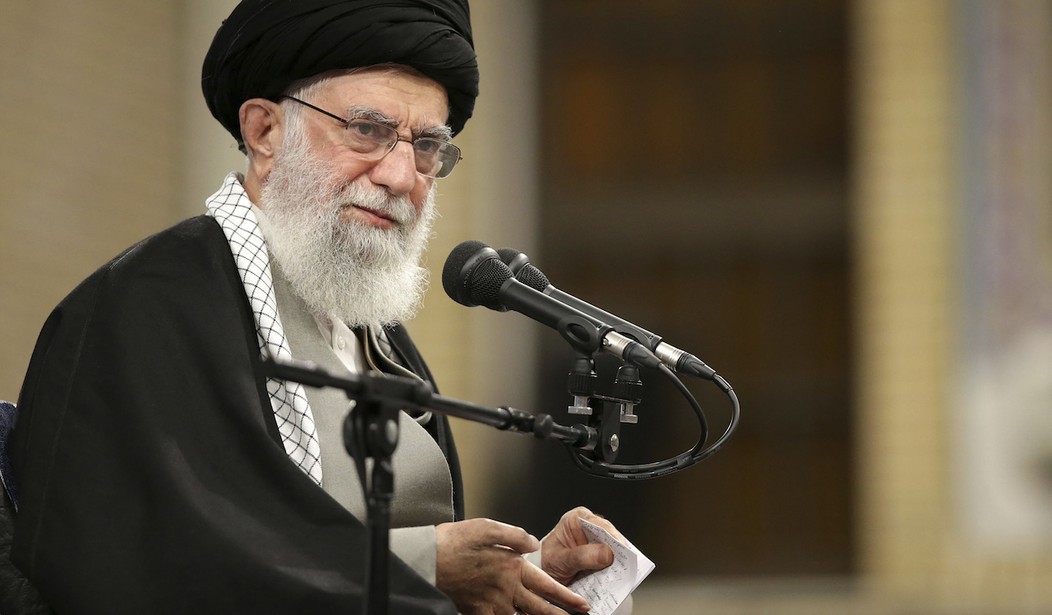As anticipated, President Donald Trump has ramped up his maximum pressure sanctions campaign on the Iranian regime. Trump was concerned that the Biden administration had softened the American approach to the oppressive theocratic regime, enabling it to increase its oil production revenues. Tehran’s oil exports brought in $53 billion in 2023 and $54 billion in 2022, according to US Energy Information Administration estimates, and output during 2024 was reckoned to be running at its highest level since 2018, based on OPEC data.
President Trump is now saying that he is open to a political negotiation with the mullahs, where they would have to agree to stringent terms for nuclear decommissioning and to stop sponsoring terrorist proxies like Hamas, Hezbollah and the Houthis. As they seek to re-establish their crumbling hegemony in the region, it is unlikely that they will ever agree to such terms, in which case Trump would be within his rights to support military action by Israel to eliminate the Iranian regime’s nuclear infrastructure. It is well known that Trump has no appetite for putting boots on the ground in Iran, fearing that it would inspire a nationalist backlash and prove counterproductive from a population that supports regime overthrow. So, a targeted air strike by Israel on the regime’s secret nuclear installations with deep-penetrating bombs provided by the Americans, would be the most likely scenario in Trump's Middle East playbook and would be widely supported in Israel.
Trump told a press conference last week that America has the right to block the sale of Iranian oil to any nation. He said that while he was open to discussions with the mullahs on a new nuclear deal, he would “obliterate” Iran if the regime tried to target him, presumably a reference to recent arrests by the FBI of a hit squad sent by the Iranians to assassinate Trump during the presidential election campaign. The president’s controversial statements about Gaza have overshadowed his Iranian strategy, but his meeting with Benjamin Netanyahu in Washington has cemented his position as Israel’s No. 1 ally. Neither Trump nor Netanyahu are prepared to allow Iran to develop a nuclear weapon.
Recommended
In a panic response to Trump’s new sanctions strategy, Iran’s Foreign Minister Abbas Araghchi said last week: “If the main issue is ensuring that Iran does not pursue nuclear weapons, this is achievable and not a difficult issue.” There have been similar statements by other leading members of the mullahs’ regime hinting that they might be prepared to reset relations with Trump and renegotiate the nuclear deal. But such daydreams were shattered last week when 85-year-old Supreme Leader Ayatollah Ali Khamenei said: “I’m brave enough myself to say death to America.” Crowds of the mullahs’ paid supporters have in the past readily chanted “Death to America,” but this was the first time the supreme leader ever uttered the words, a clear indication that Trump’s new ‘maximum pressure’ sanctions campaign has found its mark. While China is now the biggest client for Iranian oil, the strong, new sanctions strategy will cripple the Iranian economy, already struggling with surging inflation and a collapsing currency. The mullahs’ ability to sidestep punitive sanctions while Joe Biden was in the White House will now come to a shuddering stop, as the Trump administration endeavors to drive Iran’s oil exports to zero.
In January, Rafael Grossi, the chief of the International Atomic Energy Agency (IAEA), told the World Economic Forum in Davos that Iran is “pressing the gas pedal” on enriching uranium to near weapons-grade levels. The mullahs already have a stockpile of uranium enriched to 60% purity, almost weapons grade. While they could quickly enrich uranium to 90% or weapons grade purity, that would still not be the final step needed to secure a sophisticated warhead, capable of being fitted to a ballistic missile. That complex process could take a further 12 to 18 months. However, some U.S. officials fear that in a rush to demonstrate their standing in Middle East politics, the mullahs might resort to utilizing older technology, building a crude nuclear device that would be too large to fit as a warhead, but would nevertheless allow the regime to announce that it had become a nuclear power.
In an article published on February 5, former Secretary of State Mike Pompeo stated: “As the past four years have shown, enriching and enabling the malign Iranian regime only leads to war and terror. As Trump demonstrated, the best way to avoid these outcomes is through massive and effective sanctions on Iranian oil exports, which allow the regime to prop up its dysfunctional economy, fund terrorist proxies like Hamas and Hezbollah, and inflict pain and suffering on the Iranian people.” Pompeo concluded: “Now is the time not only for maximum pressure to return with support for the organized opposition within Iran, but also for the White House to fully support our ally Israel in its mission to ensure Iran never reaches its goal of creating a nuclear weapon.”
Mike Pompeo’s mention of the ‘organized opposition’ was a reference to resistance units of the People’s Mojahedin of Iran/Mujahedin-e Khalq (PMOI/MEK), who have burgeoned in recent years and now conduct courageous assaults on the regime’s infrastructure and communications across the whole of Iran. Western appeasers, like Joe Biden, should learn from past mistakes that appeasement simply emboldens the mullahs to spread their warmongering and terror abroad, while further repressing their own population at home. President Trump would do well to invite Mrs. Maryam Rajavi, the charismatic leader of the main, democratic organized opposition movement to Washington, D.C. Her ten point-plan for a future democratic, secular republic, following the overthrow of the mullahs, would restore freedom, peace, justice and security for Iran’s 95 million people, while ending the nuclear threat and the spread of war and terror across the Middle East and worldwide.

























Join the conversation as a VIP Member